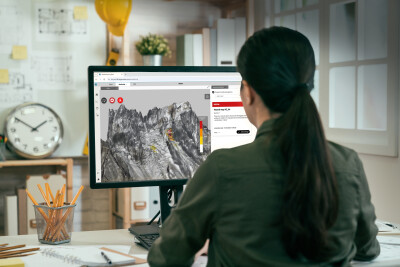I recently became aware of a couple of bills (HB1945/SB1914) making their way through the Tennessee State Legislature. These bills would remove the necessity of having to have a professional license in order to practice 27 different professions now controlled in the state. Needless to say, it piqued my interest as that list includes land surveyors, engineers, and architects (as well as accountants, real estate brokers, and embalmers!). It may be worth noting that it does not apply to teachers or attorneys – the professions of the two legislators sponsoring the bills. I think that these bills are a bad idea. However, I have a history with professional licensure that predates my own.
I started out running GPS “surveys” after graduating college. I did not have a license and neither did anyone I worked with. I didn’t actually think of them as surveys but control networks. We worked with land surveyors and they did all kinds of stuff I never even thought about. In fact, we were running a lot of these control networks for licensed surveyors because they didn’t know how to do it and didn’t have a lot of interest in making the sizable investment in the hardware and software necessary to perform these surveys. When the price dropped, and more surveyors started bringing GPS services in-house, we still got a lot of work from them. Most of it was correcting their mistakes. Let’s just say that you could be a good land surveyor and a lousy geodesist at that time.
I could have sat for a land surveyor’s license back then, but I didn’t see the need. The boards weren’t grabbing GPS as a survey tool. By the time most realized how integral it would be to surveying the cat was out of the bag.
When I got into laser scanning the pattern seemed to repeat itself. The early adopters that I worked with were mechanical and piping engineers and they couldn’t care less about land surveying, they just wanted accurate measurements and models. However, I had a few clients that could offer professional services contracts for my services quite easily while pushing a non-professional contract through meant public notice, months of bid document review and such. As ridiculous as it sounds, I ended up getting my surveyor’s license (something I had no interest in) so that I could scan (something that the survey boards seemed to have no interest in). And this is when I started to have bad ideas about licensing boards.
There were several years where I was attending 4-5 conferences per year around reality capture technologies and surveying. I was typically presenting at most of them. Yet I had to fight to keep my license every year because I was lacking pre-approved continuing education credits. I always got it worked out but at a minimum it required hours of emails and document production and more than once it required going before the board personally. Doing so put me in direct contact with others appealing board decisions and I have to say, there were some people doing some bone-headed things out there (and more than a few that were seriously shady). I developed the attitude that licensing boards were helpful but too slow to keep up with market innovations.
At the same time, many of us in the laser scanning community lamented the fact that there was no licensing or accreditation authority that covered what would become reality capture technologies. Great use cases were being squandered because technicians that didn’t know what they were doing were delivering bad datasets. With the tech being new, the assumption always seemed to, “laser scanning doesn’t work” as opposed to, “I hired someone that didn’t know what they were doing”. We tried various methods, but academia was too slow, licensing boards seemed uninterested, and many of the end users chaffed at the idea of having to prove they knew what they were doing to a third party. While I am empathetic with all involved, I still run into clients with horror stories that put them off of laser scanning for years. I can’t help but think that the lack of oversight was somewhat to blame.
Like GPS, the boards never did grab onto laser scanning either, but it looks like they are trying there best to make sure that they don’t miss the boat on UAVs. While they can’t keep the masses from using them, they are certainly trying to make sure that their licensees have ample opportunity to be educated in how best to incorporate UAVs into their current practice.
So, where does this all leave us? As I discussed last time, nothing we do is becoming less complex. Looked forward to the 2022 Datum update, land surveying in particular, is about to get a lot more complex. Someone needs to be running oversight because I just do not think that the general public has the requisite skillset to do so any more than I do for verifying that a licensed embalmer did his/her job correctly. In the end, licensure boards can help in this effort.
There are, undoubtedly, improvements that could be made in the way that licensing boards operate. The barrier for entry into any profession should be knowledge as opposed to money. I can also agree that not every service that is performed for the public should require a license. However, there is a balance in play here. If there is no method of licensure to provide some level of assurance to the public, then each citizen is required to perform their own due diligence. If history has shown us anything it’s that they will not. Whether it’s laziness, inability, or unwillingness, people tend keep doing what they are already familiar with doing. It won’t matter if it’s less efficient, or costs more money, or takes more time. The reality is that most will not have the knowledge or tools to recognize it. “Just do it the way we’ve always done it” will be the rule. We’ve all been in client meetings where any risk of “newness” was too much, regardless of the possible benefits. Thankfully there have always been some of us that didn’t feel that way or we never would have invented the wheel, much less the UAV! Propagating those ideas and improvements to all in our societies seems like a good bargain compared to the minor inconvenience of a license to me.






